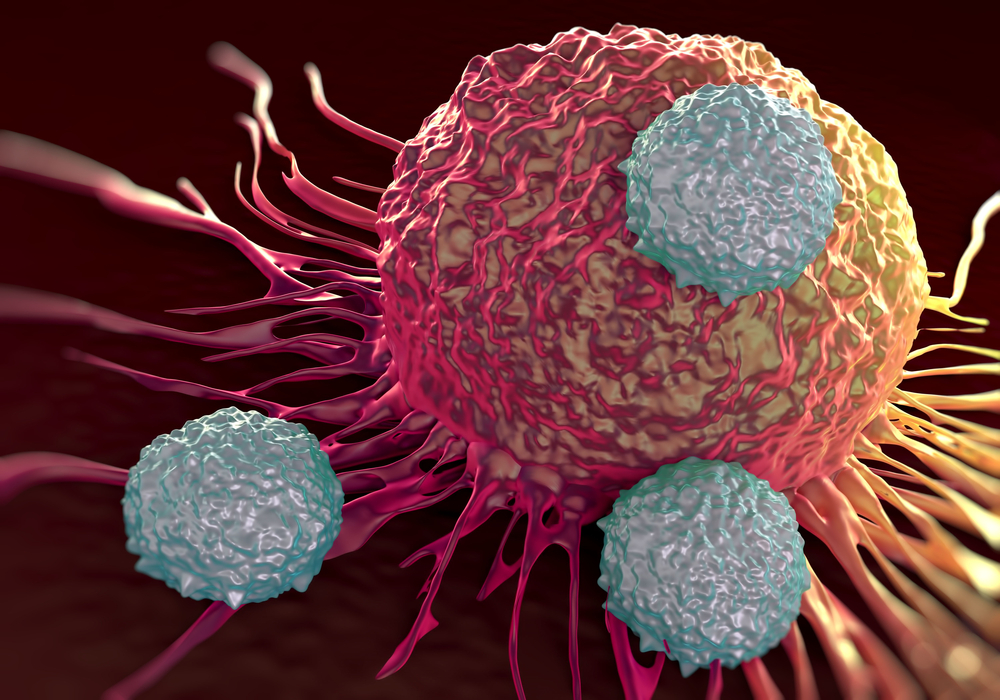In Lupus, Natural Killer Cells May Play a Protective Role

In a review titled “Immunoregulation of NKT Cells in Systemic Lupus Erythematosus,” published in the Journal of Immunology Research, researchers summarized the role of a specific class of immune cells – natural killer T (NKT) cells – highlighting their potential as a new therapeutic target for systemic lupus erythematosus (SLE).
SLE is a chronic autoimmune inflammatory disease characterized by an overproduction of autoantibodies. Even though SLE’s disease etiology remains unclear, one of the main causes is known to be the overactivation or hyperproliferation of cells of the immune system, specifically T and B lymphocytes.
Recent studies suggest that another type of immune cells, called NKT cells, also have a suppressive role in chronic inflammatory diseases, including SLE. These cells are a subset of T lymphocytes that possess features of both natural killer cells and conventional T lymphocytes, and are divided into three subtypes according to the molecular markers they express: iNKT cells or type 1 NKT cells, NKT-like cells also called type 2 NKT cells, and NKT17 cells.
The authors reviewed and summarized the latest developments on the role of iNKT cells in SLE. While several studies report that the number and proportion of iNKT cells seems to significantly decrease in patients with SLE and mouse lupus models, it remains unclear whether this phenotype is a cause or a consequence of the disease. Notably, some studies report that not only is there a decrease in iNKT numbers but this decrease also correlates with disease activity. Some patients can restore iNKT levels if treated with corticosteroids or rituximab. On the other hand, some results point to a possible defect in iNKT maintenance.
NKT cells have an immunoregulatory function and, since SLE is mediated by autoantibodies, clinical studies suggest that NKT cells may improve the state of illness by regulating the levels of autoantibody production in SLE.
Although the mortality rate associated with SLE has significantly improved with the use of corticosteroids and immunosuppressive agents, such as cyclophosphamide (CTX), these therapies are associated with side effects. This review of the current scientific literature suggests that NKT cells might play a protective role during the progression of SLE and could become a potential target for therapeutics in SLE patients.





